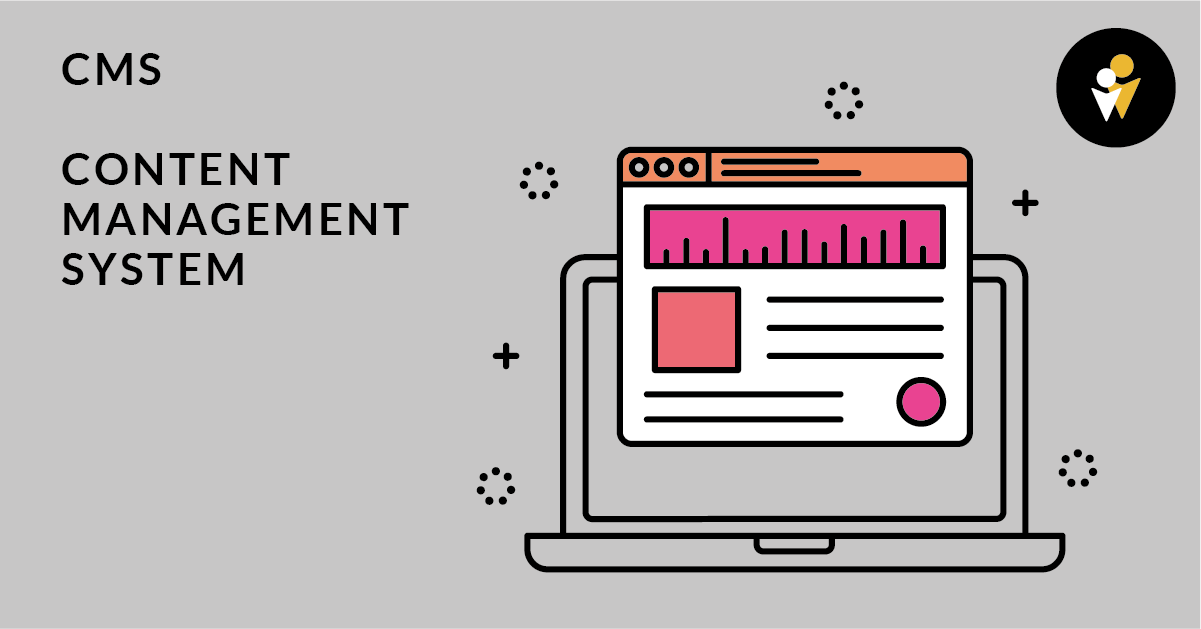Nobody ever starts a business with the intention of it petering out. On the contrary, businesses are built with the intention to attain, grow, change, and evolve. These days, a website is essential to achieving that growth, which means your website must evolve and change in tandem with your company.
With growth in mind, it’s vital to power your website with a content management system (CMS) that is scalable. There’s a seemingly unlimited number of CMS options to choose from, some of which are open-source platforms while others are proprietary.
Whittling down your list of options might be difficult, but it’s important to ask yourself how your ideal CMS will support your business growth objective in the years to come.
Shop Around for the Best Business Content Management System

Jumping from CMS to CMS isn’t the best thing to do. There’s nothing wrong with switching your CMS if you find it’s not a good fit, but that’s why it’s so important to find the best CMS before you jump in head-first.
It’s also important to work with marketing companies and developers who are experts in the CMS you choose. Don’t work with anyone just because they say they’re familiar with your CMS. There’s a noticeable difference between familiarity and being an expert.
Here at PIC, we focus on HubSpot CMS, WordPress/WooCommerce, and Shopify so we can be experts in their use. Focusing on these platforms ensures we can continuously build our development expertise and maximize our value to our customers.
B2B Marketing CMS Platforms: HubSpot and WordPress
HubSpot and WordPress are two of the best B2B CMS platforms that can scale with your business, but they have some notable differences that may help you decide which is best for your company:
What is HubSpot Content Management System?

HubSpot CMS offers an all-in-one cloud-based content management system that helps businesses easily create content, optimize their websites for lead generation, and gain insight into website performance. The HubSpot CMS also:
- Works seamlessly with HubSpot’s marketing, email, analytics, and SEO services.
- Was built with marketing in mind, which makes it perfect for B2B companies.
- Is a complete solution, so no plugins or extra software is necessary.
- Offers really cool functionality like Smart Content.
What is WordPress CMS?

WordPress is world’s most-used CMS not only because it’s free, but because it’s a fantastic open-source platform that offers unparalleled flexibility. WordPress also:
- Offers a seemingly infinite number of extensions, some of which are free. These extensions are necessary to achieve the level of reporting you’ll find with HubSpot.
- Features intuitive themes and templates. However, custom themes or templates will require some coding experience.
- Has one of the most popular e-commerce platforms in the world, WooCommerce.
If you’re still on the fence between HubSpot and WordPress, perhaps we can help:
HubSpot CMS comes with a bit of a price tag, but if you are looking to build a state-of-the-art lead generation website, this is the Ferrari of CMSs.
If you’re looking to build a lead generation website with an eCommerce element, then WordPress may make more sense for you. WordPress makes it easy to accomplish both under one domain rather than splitting up your eCommerce and main lead generation websites.
Content Management System for eCommerce Websites
Shopify and WooCommerce are two of the most popular eCommerce CMS platforms available and for good reason. They are both powerful, feature-rich platforms that integrate with everything and can help grow your business. You really can’t go wrong with either platform, but you will have to make a decision.
Here’s some more information about each:
What is Shopify Content Management System?

Shopify is scalable, reliable, easy to use, and comes with fantastic customer support. Though Shopify has a monthly fee that corresponds with the size of your business, its features and intuitiveness make it worth it. Shopify also:
- Offers multichannel integration, so you can easily sell on Amazon, Facebook, Pinterest, and more.
- Includes Shopify POS, allowing brick and mortar establishments to easily synchronize in-store and online sales.
- Enforces its own transaction fee, which makes it a little more expensive.
What is WooCommerce?

WooCommerce is WordPress’s open-source eCommerce plugin, meaning it’s free to install. Since WooCommerce is open source, you can completely customize your online store. WooCommerce also:
- Is scalable, so you’ll have no issues once your business begins to grow.
- Offers hundreds of thousands of extensions, some of which are free. These extensions are necessary to achieve the functionality that Shopify offers.
- Requires some coding ability, or will require you to hire developers or marketing companies who can do it for you.
If you’re still on the fence between Shopify and WooCommerce, perhaps we can help:
Shopify is the perfect option if you’re running a flat-out eCommerce website. It does everything you need right out of the box and it will scale with your business as you grow.
WooCommerce is the better choice if you want to include lead generation with your eCommerce website.
Additionally, WooCommerce may be the better option for eCommerce companies with very sophisticated product ranges and a complicated overall inventory. WooCommerce is more customizable than Shopify, which makes it ideal for these special situations. However, remember that these customized eCommerce websites will require the assistance of a marketing company or developer unless you have that experience yourself.
What are the Benefits of a Deeply Integrated Website?

Whether your website is eCommerce-based or is a B2B website that funnels leads to your sales team, it will need to be at least partially integrated with the rest of your company. How deep this integration goes depends on what works best for you. Every business is built differently, so there’s no right or wrong answer here.
However, websites are powerful sales tools that should, at the very least, play nice with your sales, marketing, and operations processes.
When it comes to sales and marketing, for example, your website can be the perfect tool for directing leads into your flywheel (What the heck is a flywheel?). Potential leads can be driven to your website and encouraged to contact your company or fill out a form. Your CRM can automatically feed these leads to your sales team, who can speak to the leads and even direct them back to the website to engage with more in-depth resources. Your CRM, coupled with HubSpot’s Marketing Hub can then trigger emails to send to these leads, or trigger follow-up calls and appointments with the sales team to turn the leads into customers.
Failing to integrate your website with the rest of your business is a recipe for disaster, however. If your website is getting leads, for example, but your sales team isn’t alerted immediately – or isn’t alerted at all – then you’re missing out on business. Alternatively, if your sales team receives leads from your website but doesn’t know what form they filled out or what services they expressed interest in, you’re adding friction to their sales process.
Why is a Popular CMS Important?
For the most part, popularity isn’t everything. When it comes to your CMS, however, popularity is a good thing. Content management systems such as HubSpot, WordPress, and Shopify are all supported by enormous communities that make life easier for the businesses that rely on them.
If you choose to work with a more obscure CMS, you may have difficulty finding good developers or marketing companies that specialize in your platform. Plus, if you’re handling the CMS yourself, it can be difficult to find answers to questions you have or problems you experience.
Platforms like HubSpot and WordPress are supported by thousands of developers, marketing companies, and other users. If your CMS is WordPress and you decide to switch to a different marketing company or want to hire a new developer, you’ll have no issue finding potential suitors. If you have a question about how to do something with HubSpot, you’ll be able to find others who previously asked the same question or even video tutorials on YouTube.
So, before you decide on a CRM, make sure it’s backed by a large or at least growing community.
Developing a Plan to Integrate your CMS
Before selecting a CMS and even before building your website, it’s important to develop an integration plan.
What is an integration plan? It’s an overview of every aspect of your business that your website is going to touch and how you plan to integrate them. This means inventory, shipping, accounting, the CRM, and any other business process that applies.
Not only do you need to know how these processes integrate with your website on the technical side, but you also need to know how it will impact the company side. How will your sales team react to taking leads from an eCommerce platform? If your business hasn’t functioned this way in the past, how will your team react once you begin doing this?
When an order or a lead comes in, map out how you plan to handle it internally. Once you have this plan solidified, share it with your team and get feedback to further refine it. It’s vital to communicate with your employees and to set expectations. That way, everyone knows what is expected of them once you switch to the new CRM.
If You Choose HubSpot, WordPress, or Shopify…
PIC isn’t a paintbrush agency. If you are looking for an agency who just does what they are told, we are probably not a good fit. We work with our clients to establish growth goals and use our expertise to help you achieve them. The benefit of working with an agency like PIC is that our growth-driven design method keeps us continuously working to improve your website.















